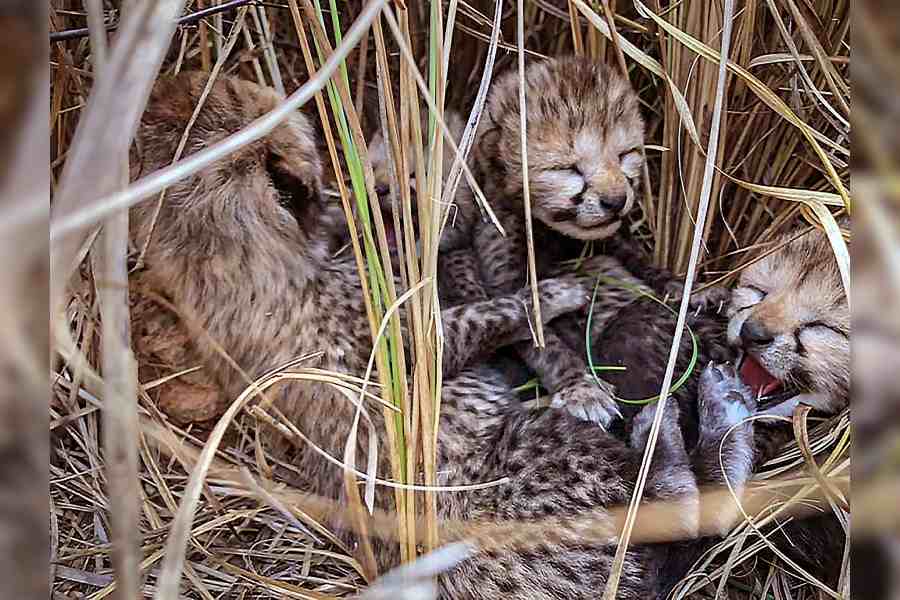Agatha Sangma, member of a parliamentary panel on the environment, has urged the Union environment ministry to “reconsider” the cheetah introduction project, citing the cheetah deaths in the Kuno National Park, the animals' space requirements and India’s land constraints.
"These unfortunate incidents (the Cheetah deaths) highlight the pressing need for immediate action to rectify the current situation and reconsider the African cheetah translocation project in India," Sangma, MP from Meghalaya and member of the standing committee on environment, said in a letter to Union environment minister Bhupender Yadav.
Sangma said that government resources should be used to prioritise conservation and the restoration of native wildlife rather than being diverted to cheetah introduction.
“The reintroduction of a foreign species, (even) one as iconic as the cheetah, should not take precedence over the conservation of our native wildlife and their habitat,” the MP said in the letter to the minister.
Many wildlife scientists have for months questioned the project, claiming the environment ministry had rushed to bring cheetahs into India without adequate preparations and disregarding cheetahs’ need for large open landscapes that they say the country lacks.
Sangma expressed similar concerns in her letter, questioning Kuno’s capacity to absorb large populations of cheetahs in the open wild and arguing that attempts to introduce them into India will pose “an insurmountable challenge”.
India had flown into Kuno eight cheetahs from Namibia last September and brought 12 more from South Africa in February this year. Three adults and three of four cubs born in Kuno in March this year have died.
“The environment ministry should at least hold immediate consultations with a broad group of wildlife scientists from within India as well as cheetah specialists from outside India to reassess the project — and, if necessary, pull back now,” Sangma told The Telegraph in a telephone interview.
In her letter to the minister, Sangma said the cheetahs in Kuno appeared to have suffered because of “inadequate adaptation measures and inadequate veterinary care”.
“The loss of these magnificent creatures is a tragedy that cannot be overlooked,” especially given that the cheetah is classified as “vulnerable” on the International Union for Conservation of Nature list of threatened species, Sangma wrote.
Project officials have asserted that the deaths, while unfortunate, should not be viewed as setbacks because the project seeks to establish cheetah populations in the wild and that “in natural wild conditions… births and deaths are a natural process”.
But scientists who have questioned the project say all six deaths so far have occurred within fenced enclosures, not in the wild. Also, the deaths of the three cubs from starvation and heat in Kuno have prompted some to ask whether the monitoring teams in Kuno could have intervened to prevent the deaths.
“We expect greater mortality in the wild — from leopards or feral dogs or from injuries that happen while the cheetahs are moving across landscapes,” said Ravi Chellam, a wildlife biologist in Bangalore and coordinator of the Biodiversity Collaborative, a network of conservation researchers.
Chellam and other wildlife researchers in India, Australia, Germany, the Netherlands and South Africa have argued since last October that the project has disregarded the large open-land requirements for cheetahs and the lack of sufficient land in India.
Project officials have said that Kuno can hold up to 21 cheetahs, but fewer than 10 have been released into the open wild. Monitoring teams have since March tranquillised two cheetahs that had moved out of Kuno and approached some villages, and brought them back within Kuno’s boundaries.
Some scientists have said the cheetahs’ prolonged captivity indicates that the project is not prepared yet to release them into the wild.












